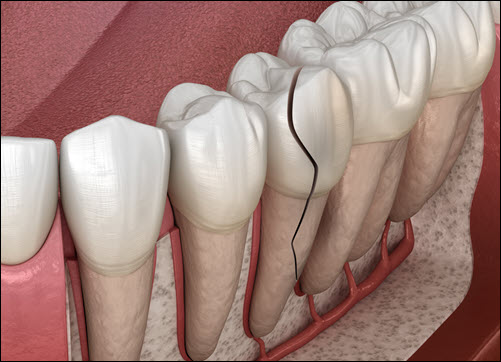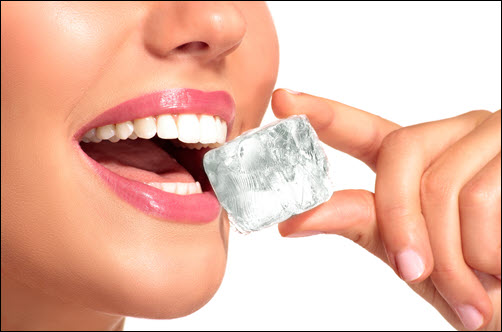Ice or Hard Candy: What to Do if You’ve Cracked a Tooth
/in Cracked Tooth, Dental Emergency, Tooth Repair/by adminChewing on ice or hard candy is a common habit for many, but it poses significant risks to dental health. This practice can lead to a range of oral issues, including cracked or broken teeth, damage to tooth enamel, and problems with existing dental work.
Hazards of Chewing on Ice and Hard Candy:
 Cracked or Broken Teeth: The hardness and cold temperature of ice can cause teeth to crack or break. Similarly, hard candy requires significant force to break, which can also result in damaged teeth.
Cracked or Broken Teeth: The hardness and cold temperature of ice can cause teeth to crack or break. Similarly, hard candy requires significant force to break, which can also result in damaged teeth.- Enamel Damage: Continuously chewing on hard substances can wear down the enamel, the outer protective layer of the teeth. This erosion makes teeth more susceptible to cavities and decay.
- Damaged Dental Work: Fillings, crowns, and other dental work can be dislodged or damaged by the force exerted when biting down on hard substances.
- Risk of Choking: Both ice and hard candy pose a choking hazard, especially if they are inadvertently swallowed.
- Jaw Pain and Wear: Constantly chewing on hard items can lead to jaw pain, and over time, contribute to disorders of the temporomandibular joint (TMJ).
What to Do if You’ve Cracked or Broken a Tooth:
- Immediate Action: If you crack or break a tooth, it’s important to act quickly. Rinse your mouth with warm water to clean the area and use a cold compress on the outside of your cheek to reduce swelling.
- Pain Management: Over-the-counter pain relievers can help manage discomfort, but avoid placing aspirin directly on the gums or broken tooth as this can cause tissue damage.
- Temporary Dental Measures: If there’s a sharp edge, cover it with dental wax or sugar-free gum to protect your tongue and cheek.
- Consult a Dentist Promptly: Visit a dentist as soon as possible. Time is crucial, especially if the tooth’s nerve is exposed or if there is significant damage.
- Treatment Options: Treatment depends on the severity of the damage. It may range from a simple filling to a crown, or in severe cases, root canal therapy or extraction.
- Prevention: To prevent future incidents, avoid chewing on ice and hard candy. If the habit is hard to break, try switching to chilled water or sugar-free gum.
In conclusion, while it might seem harmless, chewing on ice or hard candy can lead to serious dental issues. It’s important to be aware of these risks and seek immediate dental care in the event of a cracked or broken tooth. Prevention is key, and adopting safer habits can help maintain good oral health. But if you need a tooth repaired, call Marysville Family Dentistry to help restore your smile!



